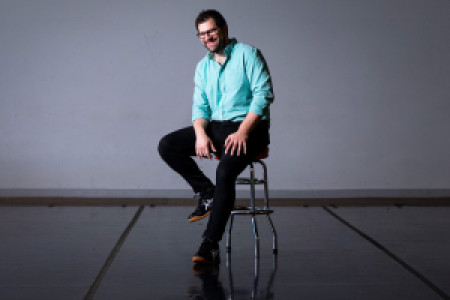Biography
Vocal Characteristics
Language
EnglishVoice Age
Young Adult (18-35)Accents
North American (General)Transcript
Note: Transcripts are generated using speech recognition software and may contain errors.
after Boheme, Puccini's set to work rather rapidly on his next project, Tosca. It was based on a play by the Frenchman Victoria, and so do a very popular player in his day who never aspired to know received high, critical claim. La Tosca, as the play was called, had in fact been written for no less a stage presence than Sarah Bernhardt. It was violent who and even a tad kinky and start to his version. All the cheesiness of the story is embedded in good French dialogue and excruciating dramatic detail for Starr. Do was a proponent of what was long called the well made play. Everything had a reason, and all the reasons were spoken out at some length. Nevertheless, there was an emotional core to the work. Verity had looked at it and pronounced his stage worthy, which was nothing short of a message from God for recording. But he would not write it himself. The 81 year old icon was serious, finally, about not writing any more operas. There was a slight problem recording had assigned Ilic a toe work on the libretto of Tosca for Frank, 80 and in fact, Frank Kitty was writing Tosca as Puccini was composing Boheme. Once poem was done and launched. And while Frank, if he was still dithering over Tosca, it became necessary to pull the work out from under from Katie and give it to Puccini. There several variations of how this was managed, some say record. He used fraud and cheated from Katie Otto, the chance at a huge success. Others maintain that Frank if he had never really loved the story and was eager to be rid of it. There's plenty of evidence for both points of view. The upshot, of course, is that it went to Puccini, even if there are more hints of strained relations between the two. At this time, Our kitty wasn't the only person with reservations about Tosca. Jacko's a found the whole thing disgusting and wasn't afraid to say so. He had to be pulled through the process of working on the libretto. Delicate, too. I felt that it was coming out all wrong and complained loudly about it. Puccini even got into quite a row with recording their first ever over disagreements about the work. There was something about this opera that simply set people off Puccini held his ground, wrote conciliatory letters to Papa Giulio, saying, You'll see and plans were made for the premiere. The story takes place in Rome and, moreover, is as star do kept stressing to Puccini and its input into the opera, A Roman emperor and more than the setting, the premier therefore had to take place in Rome, where Puccini had never premiered in opera before Rome was tense. In 1900 Pope Leo, 13th had declared 1900 a jubilee year, and the city was full of pilgrims and tourists. Of course, Rome is also always full of agitators and revolutionaries as well. And just then the anarchists are making their presence known with no subtlety. All the divergent political and cultural spasms of Italy were shaking Rome at just that time, and many feared the city would explode one way or another that year. The premier on January 14th was especially tense. Bomb threats were made on the opera house. Recording was actually more nervous about the many musical nobles president, the audience, including Mask Anne Frank, 80 and others who feared what caused a disturbance. Anarchists he could manage. But composers are unpredictable. We might get of Italy announced her intention to attend. She was late and missed Act one. The disturbance was heard shortly after the curtain went up and the conductor, thinking a bomb had gone off, played the national anthem. It was late comers arguing with ushers. People's nerves were shot, which happens to be an excellent way to enjoy this particular opera. The audience was enthusiastic, and the critics the next morning were, and many cases so outraged and repulsed that Puccini immediately knew he had another big hit. Later that year, Kingdom Better was indeed assassinated. Queen Margherita wrote a simple and poignant prayer published in the newspapers. Verity, never a royalist, was moved by the prayer and attempted to set it to music. He got no further than a few notes, though, and they were his last. The grand man died in Milan on January 27th 19013 days of national mourning were decreed. Jacko's a delivered the funeral oration in case anyone had any doubts the old century had passed. Attentions would be focused on Puccini as never before, and he was not one who loved attention. Returning to torture the Lago after Tosca, Puccini was now in a position to build a house for himself. He had already begun to buy, refurbished or build small residents. His hunting lodges and summer homes in the hills near by Puccini had a case of what the locals called Mal de Piatra, the Stones sickness, or what we might call building itis. It is not surprising, given his many years of wandering, his desire to live apart from the world, that he should have indulged in this vise, and at this point in his life, he could well afford it. He bought the Villa Puccini and Order the Lago right by the waters of Lake Muscle Chu, coolly unpleasant but eminently unpretentious home. It is a museum today, and it contains the mausoleum where he, Elvira and tone your buried.
